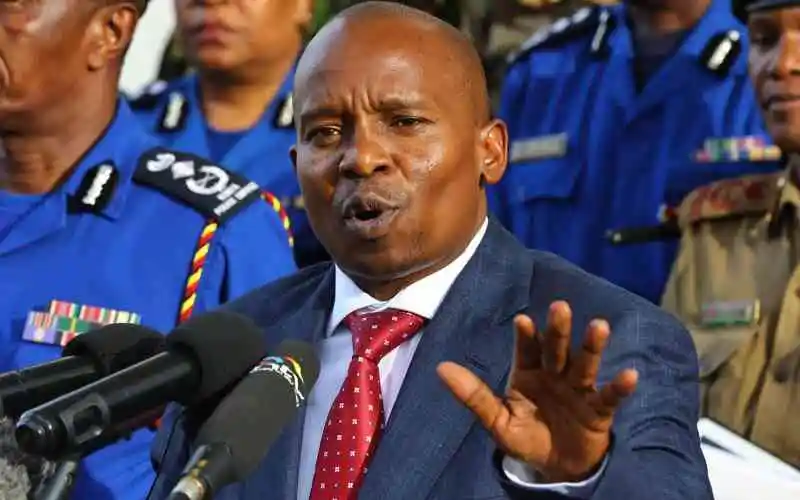As calls for reform and stricter regulation within the alcoholic manufacturing industry echoed, the Ministry of Interior under the leadership of Deputy President Rigathi Gachagua intensified its crackdown on public officers running bars and clubs on the side. The move, aimed at addressing the pervasive issue of illicit brews, drugs, and substance abuse, gained momentum with a directive from Interior Principal Secretary Raymond Omollo.
In a letter addressed to all Heads of Departments dated March 13, Omollo reiterated the Ministry's stance, emphasizing that all public officers involved in the operation of bars and clubs must either shut down their establishments or resign from their positions immediately. The directive, part of a broader set of measures outlined by Interior CS Kithure Kindiki, aimed to tackle the alarming levels of trade, consumption, and abuse of drugs and illicit alcohol, recognized as a significant national security threat.
Acknowledging the gravity of the situation, Omollo's letter, copied to Kindiki and Head of Public Service Felix Koskei, highlighted the necessity for compliance. The Ministry vowed to conduct cross-referencing checks through the Public Service Commission and other relevant agencies to ensure adherence to the directive.
Among the affected state officers were those within the enforcement chain, including personnel from the Kenya Bureau of Standards (KEBS) and the Anti-Counterfeit Authority (ACA). Additionally, individuals from Public Health, the National Authority for the Campaign Against Alcohol and Drug Abuse (NACADA), National Government Administrative officers (NGAO), and the National Police Service (NPS) found themselves impacted by the stringent measures.
The crackdown followed a series of actions spearheaded by CS Kindiki, who, in a press briefing two weeks prior, issued 25 directives targeting various aspects of the alcoholic beverages chain. This included the suspension of licenses and certification permits for second-generation alcohol and alcoholic beverage distillers and manufacturers, previously issued by the Kenya Revenue Authority (KRA) and KEBS.
Under the new directives, manufacturers were mandated to reapply for licenses, subject to stringent requirements such as the installation of Quality Control (QC) laboratories equipped with Gas Chromatography with Flame Ionization Detector (FID).
Moreover, Kindiki nullified any licenses issued by County Governments to bars and premises that contravened provisions of the Alcoholic Drinks Control Act, particularly concerning the licensing of premises within residential areas and around educational institutions. County Security Teams were instructed to ensure the immediate shutdown and seizure of such premises.
The urgency of the crackdown was underscored by recent tragic events in Mt. Kenya, where illicit liquor claimed the lives of 17 individuals. This grim reality propelled the Ministry into swift and decisive action, with Deputy President Rigathi Gachagua and CS Kindiki leading efforts to curb addiction among the youth and expose any collusion between elected leaders and drug lords.
With the Ministry's crackdown in full force, stakeholders awaited further developments, hopeful that these measures would mark a turning point in the fight against illicit substances and alcohol abuse plaguing the nation.

